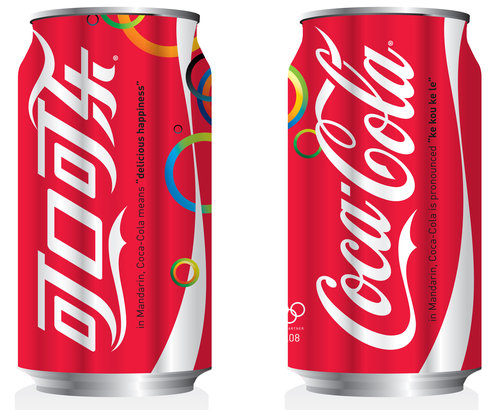Continuing on the topic of trademark and brand protection from my previous post, I’m going to discuss the issue of registering your brand in the native language which is Simplified Chinese in Mainland China.
If you are planning to establish a long term presence in Chinese market it is advisable to start thinking about Chinese equivalents of your company’s name and other trademarks. This can be tricky as a simple translation or phonetic transliteration of your brand name may not work well enough locally.
Ideally, your Chinese name should sound similar to your English one and, at the same time, contain characters that reflect an intended mood or feeling. Coca Cola’s Chinese name is the classic example of such successful combination: 可口可乐 made of 可 ke3 (being able) 口 kou3 (mouth) 可 ke3 (being able) 乐 le4 (happiness), or “enabling the mouth to enjoy happiness”.
Another example is IKEA or 宜家 in China combining 宜 yi2 (proper) with jia1 (home).
Obviously, not always such successful combinations are available but in either case, the characters should mean something positive and convey proper mood. It means that you should use a native Chinese speaker, or perhaps even a few people, to figure out the most suitable name.
Once the proper name has been found, next step is to register it as your trademark. You may want to register several variation of the same name taking into account local variations but, in most cases, one version will do just fine.
Registering your brand in China doesn’t provide any protection in other Chinese speaking countries and territories where the brand must be registered locally.
Once you have confirmed that no one else has the same name registered in the categories of your choosing, go ahead and file an application as soon as possible.
One should also consider a possibility that your name may eventually evolve or the market will be not receptive enough to it and may require some further changing and tweaking. In this case, you should go back and rethink your choice. On the other hand, if your brand becomes successful, there is always a possibility that someone else will try to mimic its name to create a copycat product. In this case, you should try to lay claim on as many variations as possible, limited, of course, by the depth of your pockets.
Keep in mind that registering your brand in China doesn’t provide any protection in other Chinese speaking countries and territories where the brand must be registered locally. Also, in other jurisdictions such as Taiwan, Hong Kong and Macau, the name should be registered in Traditional Chinese which the main language there. It may also sound and mean quite different things outside of Mainland, therefore it would be a good idea to verify your brand name again before registering it.



